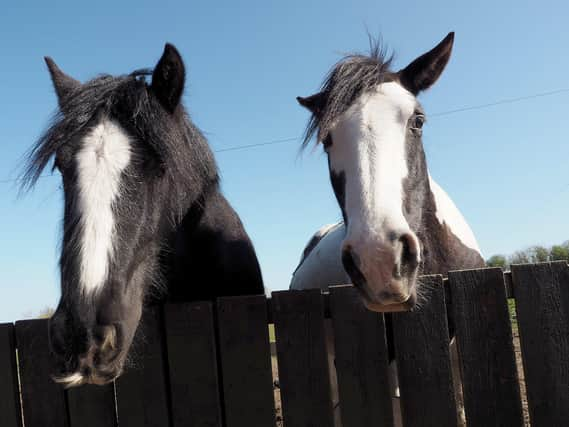FARMING: Horses are suffering their own virus threat


We’d like, once again, to thank all our clients for their support and understanding during the lockdown period. We’ve had so much support for working in news ways, and everyone has been understanding of the difficulties this has caused us. We will continue to work in different ways to usual, to enable us to pose as low a risk as possible to all our clients, ourselves and the general public as we provide veterinary care to our patients.
Pandemics occur in all species, with a variety of different diseases: in Thailand, there has been another disease outbreak – but this one is in the equine world. The African Horse Sickness virus has been causing havoc amongst the equine population in Thailand, with hundreds of horses having died of the disease and movement restrictions on all equids in place in some areas of the country. Horses have no natural immunity to the virus, so the majority of exposed horses will become ill. The virus causes several different forms of disease: a respiratory form with fever, breathing difficulties and often a rapid progression to death; a cardiac form with fever, swelling of the eyes, gums, cheeks and neck with occasional colic signs; a mixed form; and a ‘horse sickness fever’ which involves fever, a reduced appetite, depression and often a recovery from the disease.
Advertisement
Hide AdAdvertisement
Hide AdThe virus is spread by biting midges, and sometimes dogs become infected by eating infected horse meat. Unfortunately, there is no specific treatment for this virus, other than supportive treatment of infected horses. African Horse Sickness is endemic (infection is regularly present) within central Africa, from where it regularly spreads to other areas of the continent. Prevention involves a vaccine (only available in some countries), and fly avoidance.
African horse sickness is a notifiable disease in the UK, and also globally due to its high risk of spread. This means that countries with outbreaks have to report these, allowing international collaboration to combat the disease, as well as allowing countries currently free from the disease to take further precautions and implement movement restrictions to hopefully prevent entry of the disease. As climate change occurs, we may be more at risk of African Horse Sickness (and other exotic diseases) in the UK but luckily, at present the disease is not seen in the UK and much of the world has a ‘disease- free’ status regarding African Horse Sickness.